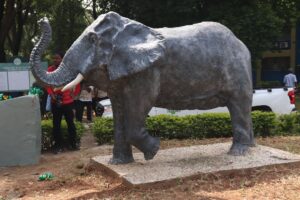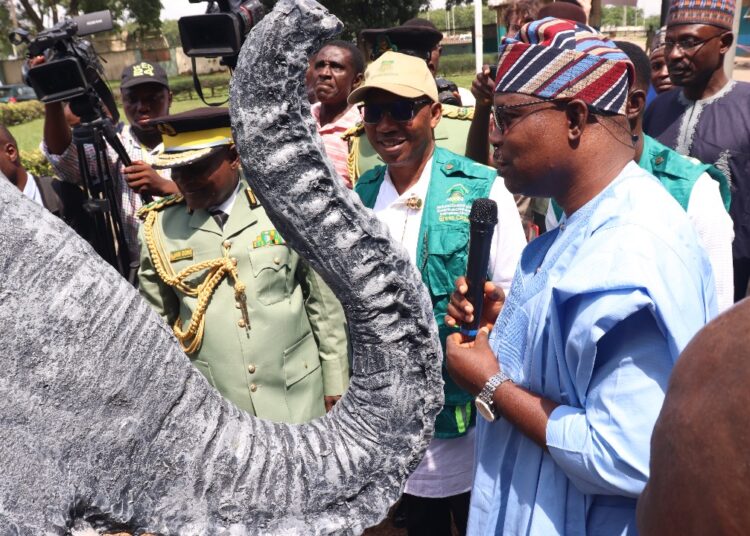The federal government has launched a statue constructed from crushed elephant tusks and ivory stockpile.
Minister of State for Environment, Dr. Iziac Kunle Salako, while unveiling the statue, yesterday in Abuja, highlighted the ongoing challenge posed by illegal wildlife traders and the increasing global demand for wildlife parts.
He emphasized the need for resolute enforcement, technological advancements, and enhanced collaboration among various government agencies, including the Nigeria Customs Service, the military, and the Nigeria Police.
He said: “Let me also use this opportunity to call every Nigerian to support our fight against illegal wildlife trafficking by providing intelligence, discouraging animal poaching and refusing to use products that are not ethically sourced including from online sources.

“We need wildlife for our survival, well being and prosperity as they maintain ecological balance, provide critical ecosystem systems, maintain the food chain and they keep us connected to nature.
“The Federal Ministry of Environment will continue to do everything possible to ensure that we play our part in harnessing our natural resources for sustainable development.”
The Ministry assured that it will continue to do everything possible to ensure that Nigeria plays its part in harnessing natural resources for sustainable development.
In his address, Dr. Innocent Bariate Barikor, Director General/CEO of the National Environmental Standards and Regulations Enforcement Agency (NESREA), expressed gratitude to the National Parks Service and the Minister for their support throughout the disposal exercise.
He said: “Today is another historical day because what is about to be unveiled is the first of its kind whereby complete transparency in the action of Nigeria intolerant to illegal Wildlife trade is demonstrated.
“I would like to thank the management of the National Parks Service who has worked with our Agency in synergy to the success of today’s exercise and most specifically the Honourable Minister for his unwavering support since the beginning of this disposal exercise till this day.”
Dr. Barikor also commended key development partners, including the Elephant Protection Initiative Foundation (EPIF), the United Nations Office on Drugs and Crime (UNODC), the United States Embassy, the World Conservation Society (WCS), and the Wild Africa Fund, for their assistance in training, financial support, and enforcement tool procurement.











